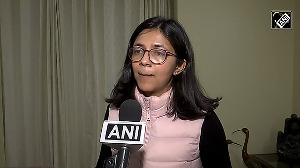The lawmakers doubted Musharraf's ability to crack down on extremists and his willingness to hold free and fair elections.
"Due to President Musharraf's, some would say, tepid cooperation in controlling extremism and disrupting terror networks, along with signs that these crises have compromised his grip on power, there's a growing chorus calling for a significant re-evaluation of US policy toward Pakistan," remarked Democratic senator John Tierney at a Congressional hearing.
"Is our current aid package to Pakistan, one in which we are providing at least 10 times more for military aid than for basic education assistance, in the best long-term interest of United States national security?" he asked US Assistant Secretary of State Richard Boucher, who was testifying before the hearing.
Ranking Republican lawmaker Christopher Shays said Musharraf "may be turning a blind eye" towards the growing ranks of Taliban and al Qaeda in Pakistan and lacking the ability or will to crack down on terrorist training camps, stopping the proliferation of jihadists, and attacks on coalition forces and Afghan civilians.
"In fact, some say with confidence that Osama bin Laden is currently in a training camp near the Pakistani-Afghan border, not far from Peshawar. Yet somehow President Musharraf has not been able to find it," he said.
Shays asked Boucher that if any of it is true, how does the United States justify continuing its "unconditional support" for Musharraf's government?
"And how do we in Congress justify to the American people writing checks for billions of dollars to a regime that may not be the partner against terrorism the United States needs it to be, but may actually be hurting national security interests of the United States and our allies?" Shays asked.
The lawmakers also asked what the US is doing to help ensure that the upcoming Pakistani national elections are free and fair. "And what are the consequences for President Musharraf if they are not?" Tierney asked.






 © 2025
© 2025